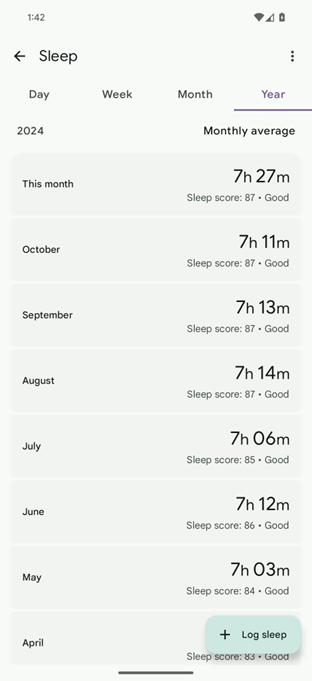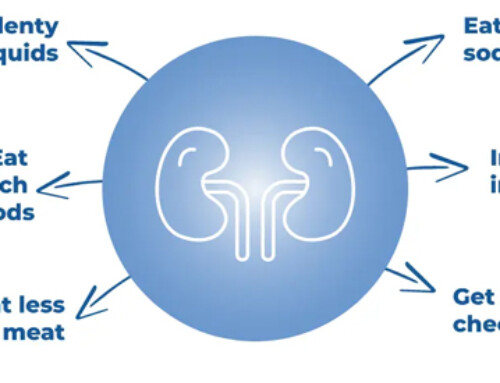Sleep has always been important to me, not because of any specific health benefit. I just don’t like being tired. It turns out sleep has important health benefits too. Not the least of which is an association with living longer and healthier.
How sleep helps prevent chronic disease | Peter Attia, M.D.
Over the past 1 ½ years I have improved my sleep score on FitBit from an average of 80 (on the border of fair to good) to an average of 87-88. It is not unusual for me to get a score above 90 (excellent) and I rarely get a score below 85.
Here are my experiences with 5 steps on my journey to improved sleep. Number 5 had the biggest impact.
Table of Contents
Put in the Time
This requires both a mindset and understanding. The average recommended amount of sleep for an adult is 8 hours, the lower end of the range is 7 hours.
Mindset
Many say, and may believe, that they don’t need 8 hours of sleep. Perhaps they only need 6 or less hours. This is the wrong question. The question I ask is: Do I want to just get by, or do I want to thrive? I may “need” less sleep to get by, but I want more from life. I want to thrive. For me that is a minimum of 7 hours.
The endocrinology elective my intern year started with hospital rounds at a ridiculously early hour. I had to get up at 5 am. One day a senior resident was lamenting how tired he was and couldn’t believe I wasn’t tired. I told him I went to bed at 9 pm the night before because that was 8 hours.
Later in the elective he told me “I tried going to bed at 9 last night and I feel great!”.
The difference between getting by and thriving.
Understanding
So to get 7 hours of sleep, you need to go to bed 7 hours before you need to get up, right?
Wrong.
You are not asleep the whole time you are in bed. We all know it takes at least a few minutes to fall asleep and often wake and lie in bed a few minutes before the alarm goes off. But there are also many micro awakenings throughout the night that we are not even conscious of.
Sleep trackers show average awake times of approximately 10% in bed (45-60 minutes). My average FitBit average to date in 2024 is 58 minutes.
7 hours in bed will result in about 6 hours 15 minutes sleep time.
My personal goal is 7 hours 15 minutes sleep time. To achieve this I plan for 8 hours 15 minutes in bed. Life is life and this is not always possible, but this is the goal.
Alcohol
Many have the experience of alcohol impairing sleep. My experience was more restless and less restorative sleep. Alcohol also has been shown to impair REM sleep.
Many observe a dramatic improvement in sleep without alcohol. In May 2023 I decided to become a non drinker. Although I observed my sleep to be less restless and less interrupted my sleep scores only marginally improved.
This is just my personal observation. Although I believe not drinking is a significant positive I did not observe a direct correlation with sleep.
The 10/3/2/1 Rule
Around this time I also became aware of the 10/3/2/1 rule.
Count Down–Not Sheep–to a Good Night’s Sleep | ColumbiaDoctors
The 10,3,2,1 rule is
- 10 hours before sleep: Avoid coffee/caffeine
- 3 hours before sleep: Avoid food
- 2 hours before sleep: Avoid work/email.
- 1 hour before sleep: Avoid screen time/blue light.
I gradually implemented these. I was one of those people who believed caffeine didn’t affect my sleep. After reading this I decided to not drink coffee after noon. More recently I decided to limit myself to three 12 ounce cups a day.
For me, bringing my cell phone into the bedroom is asking for trouble. I need to keep it charged downstairs. There was a time that I thought that doing a meditation on an app before sleeping would be beneficial. What ended up happening is I would scroll through YouTube – not good.
These are useful interventions. Now that my sleep is better, I observe the adverse effect that foregoing one of these recommendations has.
Outdoor Light
The sleep researcher Matthew Walker, believes that outdoor light in the morning is beneficial.
It turns out that even on a cloudy day the intensity of outdoor light is much more intense than that of indoor light.
My personal implementation is that I developed a habit of taking a walk outside after lunch. There have been some challenges and many benefits.
- Challenge:
- Feeling as if I’m too busy. I sometimes need to ground myself and tell myself “Dude it’s only 15 minutes. It’s ok”
- Benefits:
- Outdoor light. It’s not the morning, but it is outdoor light relatively early in the day
- I tend to do a lot of exercise anyway, but exercise helps sleep.
- I also use this time as an opportunity to practice mindfulness by clearing my thoughts, listening to the sounds and noticing.
Consistency
Having a consistent sleep schedule has had the greatest positive impact. I don’t consider myself a morning person, but have long observed that if I can get to bed early and get up early my day goes better.

There is a way to achieve this and allow for some flexibility.
My practice has been to keep my wake up time within an hour, even on weekends and days off.
This practice has been a game changer.
I sleep better, find it easier to fall asleep and feel more energetic, present and productive overall.
The sleep scores confirm this.
Summary
I have been able to improve the quality of my sleep in both a subjective and objectively measurable way. My experience with 5 incremental modifications has been positive. Maintaining a consistent sleep schedule, while allowing for flexibility has had the greatest impact.

